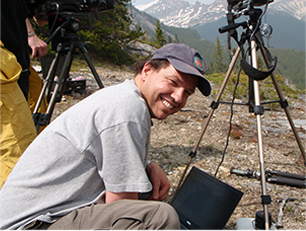The Leverhulme Centre for Wildfires, Environment and Society is welcoming applicants for the King’s China Scholarship Council awards.
Up to 100 K-CSC joint scholarship awards are available to support students from China who are seeking to start an MPhil/PhD degree at King’s College London in the 2022/23 academic year. Visit here for more information.
The Centre is the only comprehensive wildfire science institution in the world. It is a ten-year, £10 million activity addressing the many challenges of wildfire, integrating approaches from the social and natural sciences. King’s College London is a major partner of the Centre, and for the academic year 2022/23, three of our Academic Staff from the Department of Geography and Department of Engineering are offering potential PhD projects for the King’s CSC awards. Example project descriptions are shown below from each Supervisor, but you are also free to suggest your own or to jointly develop other potential ideas. If you are interested in applying, please get in touch with the relevant supervisor directly.
Applications Open: 18th October 2021 | Applications Close: 4 Jan 2022
Supervisors and Projects
Prof Martin Wooster martin.wooster@kcl.ac.uk

Project 1: Machine Learning of Wildfire Forecasting
Fires are an inherently stochastic process, and thus difficult to forecast. Wildfire danger is commonly calculated largely on the basis of meteorological data and forecasts, to forewarn of periods of high fire risk. However this does not forecast the actual presence of fires, just the potential for them to happen. See UK example here Air quality forecasting services ideally require the ability to forecast fire incidence rather than just fire danger. Using a long-term (20 year) record of global fire activity along with driving data believed to be associated with fire incidence, the aim of this PhD is to explore methods of machine learning that could be used to forecast fire activity as well as fire danger, taking into account for example meteorology, landcover, current fire activity, human presence, past patterns etc. The successful development of such a system would be a significant step forwards, with the potential for inclusion into operational systems aimed at air quality forecasting. As part of this PhD, the candidate will be affiliated to the UK’s National Centre for Earth Observation (www.nceo.ac.uk).
Project 2: High resolution infrared spectroscopy of fire emissions to the atmosphere
Smoke from landscape fires is a complex mix of aerosols and trace gases, and a major source of atmospheric emissions. However, the exact nature of the smoke chemical composition changes with the type of vegetation being burned and the type of fire underway. Mostly this variability has been investigated using laboratory studies, collection of smoke at field sites, and airborne campaigns. We have acquired new very high spectral resolution equipment based on Fourier Transform Infrared (FTIR) technology that can be used to probe smoke chemistry remotely, and even in theory provide an image representing the different chemicals within a plume. This PhD will harness this new technology to better understand how smoke chemical composition varies in real fires, with the potential existing to deploy these systems from research aircraft as well as from the ground to study plumes in different fire environments and thus provide new information on their makeup and resulting atmospheric impacts. As part of this PhD, the candidate will be affiliated to the UK’s National Centre for Earth Observation (www.nceo.ac.uk).
Project 3: Satellite remote sensing of Asian fires
New satellite technology is providing vastly improved data on landscape fires. Asia is the continent where landscape fires have most impact on air quality, and the new technology that can be brought to bear to understand this issue better includes the geostationary satellites Meteosat IOD and Himawari, and the polar-orbiting satellites operated by the USA, China and other national agencies. By combining satellite-derived fire data on burned area and active fire, this PhD aims to provide a detailed study of how well we can actually assess the amount of material being burned and the amount of smoke being put into the atmosphere by fires across key parts of Asia. Evaluation of the answers will come from use of the resulting estimates within models, and comparison of that model output to additional datasets such as aerosol optical depth. The focus will in part be on the types of fire that have typically been hard to examine through satellites, such as crop residue fires and understory burns, leading we hope to far more certain and less-biased estimates of Asian landscape fire emissions. As part of this PhD, the candidate will be affiliated to the UK’s National Centre for Earth Observation (www.nceo.ac.uk).
Prof David Demeritt david.demeritt@kcl.ac.uk

Project 4: Regulating agricultural fires and air pollution in China. The burning of agricultural waste is a major source of fine particulate matter causing air pollution and leading to millions of avoidable deaths each year across the world each year. In China, President Xi Jinping has made controlling air pollution a national priority. In 2013 the State Council published a National Action Plan on Air Pollution Control that set out high-level targets for pollution control, but left detailed policy design, implementation, and enforcement up to lower levels of government. This project will use comparative policy analysis methods to (i) compare the specific policies developed for regulating agricultural fires affecting air quality in Jingjinji Area, Yangtze River Delta and Pearl River Delta regions of China; (ii) assess their impacts on both ambient air quality and local livelihoods of agricultural populations affected by them (iii) explain the cause for any observed differences in policy process and outcomes between regions of China
Dr Francesco Restuccia francesco.restuccia@kcl.ac.uk

Project 5: Fire dynamics and smouldering fire spread of litter fuel
This research project focuses on fundamental understanding of smouldering and flaming fire for wildland conditions, predominantly caused by litter fuels . Litter fuel is a predominant source of fire spread: accumulation of litter creates a ground fuel layer that promotes both smouldering and flaming wildfires. This project will use measurements of different ignition and spread data for various common litter fuels such as pine, sawgrass, or light slash, to try and determine the differing fire behaviours, and possible transition from smouldering to flaming wildfires, depending on the fuel layer type. The project incorporates multiphysical modelling and experimental data to define a global model.
Examples of successful applicants
Dr Tianran Zhang

Tianran is a satellite remote sensing researcher who previously work in the Group of Prof. Martin Wooster, and on the development of Global Fire Assimilation System (GFAS), one of essential inputs for Copernicus Atmosphere Monitoring Service (CAMS). Tianran joined the Department of Geography as a PhD student from 2013 to 2017. Her PhD at King’s was funded by the King’s China Award (a forerunner scheme to the CSC scheme with slightly different rules), entitled ‘Smoke emissions from eastern China’s agricultural residue burning assessed using remotely sensing and in situ measurement’.






